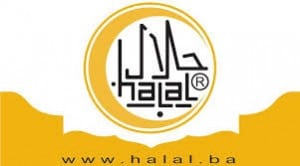By Gemma Hunt – Sarajevo Times
Whilst the production of halal meat has been big business in Bosnia since 2006, when Europe’s first agency for halal quality  certification was established in the country, a wider range of businesses have recently tapped into the business potential of offering halal meat and services. Restaurateurs, hoteliers, food production agencies and even banks are all turning halal in order to benefit from this lucrative and growing market.
certification was established in the country, a wider range of businesses have recently tapped into the business potential of offering halal meat and services. Restaurateurs, hoteliers, food production agencies and even banks are all turning halal in order to benefit from this lucrative and growing market.
According to Deloitte Tohmatsu Consulting, the worldwide halal market was worth an incredible $1 trillion in 2015, meaning that the potential from tapping into this market and getting it right is huge.
The huge variety of hotels and restaurants choosing to serve exclusively halal products within their establishments is truly revolutionizing travel and tourism within the country. Finding halal food that is both delicious and affordable can often prove to be a real challenge for Muslim travelers from around the world, and its growing prevalence within the country is proving to be a big attraction for tourists from overseas, particularly from the affluent Gulf market.
When choosing where to eat or where to stay whilst travelling, the first thing that visitors from the Arab world look for is if there is a halal certificate: without this certificate, many hotels and restaurants will simply miss out on the increased number of tourists, and won’t benefit from the influx of money that is entering the country from the Gulf region right now.
Growing tourism, and attracting Muslim travelers from overseas, is becoming big business for the country, particularly in Sarajevo, which is positioning itself as a hub for banking that follows halal principles, and is therefore attracting a lot of interest from overseas investors.
The Health Benefits of Halal
As well as the obvious religious rules surrounding the consumption of halal meat, there are also many health benefits of choosing to eat halal meat. If you are thinking about undergoing a natural and holistic detox for the new year in order to cleanse your body of the excesses of the holiday season then opting for halal meat when you next visit your local grocery store is a great place to start. Many people assume that in order for meat to be halal it simply has to contain no traces of pork product, but actually, it is so much more than that.
In order to receive the certification that it is officially Halal, Halal meat must be cleared of pesticides, heavy metals, GMO, antibiotics and other elements that have the potential to have a negative effect on our health. This means that all the toxins we would aim to remove from our diet and from our bodies when we detox have already been removed from halal meat.
The kind of treatment and feed an animal receives during its life is also important in order for it to receive its halal certification, so if you are concerned about animal welfare and the life cycle of the animals you eat then halal is also a much better and much more humane option. Many consumers consider it to be a much healthier choice, regardless of the religious implications involved.
Getting on board with all things halal is going to be big business for Bosnia in 2017, regardless of the costs involved. The fact is that maintaining halal standards is more expensive: halal food costs more and therefore the prices in hotels and restaurants that have a halal certificate will also be higher.
For the everyday consumer, purchasing halal meat from the grocery store is also slightly more expensive. But because the overseas markets that tend to visit for tourism are coming from considerably more affluent Gulf countries, they still consider the prices in the country to be very affordable, and this affordability makes the country appear a much more attractive holiday destination that will increase our overall revenues, as well as attract potential investors to the country who are looking for a city that will meet their specific needs.



